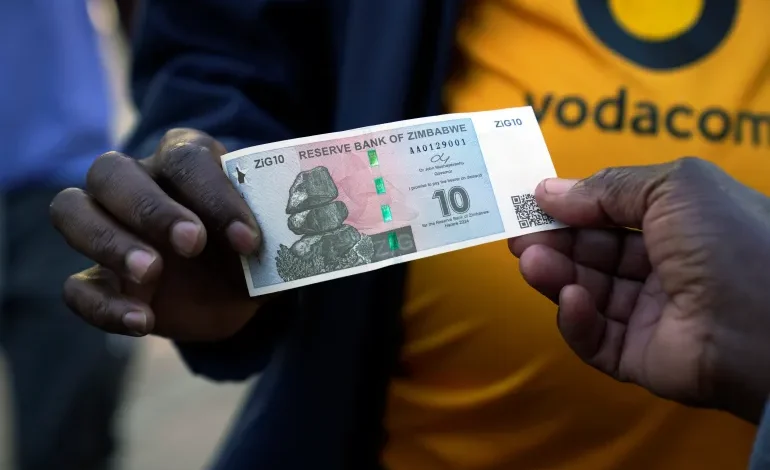‘Police are lenient’: Zimbabwe’s disabled black market currency dealers

Kenias Mutsenha had long ceased using his Zimbabwean local currency bank account, abandoning it for one trading in US dollars, as many in the economically volatile country prefer dealing with more stable foreign currencies.
But when he took on consultancy work in Harare this year and a client needed to pay him in Zimbabwe Gold, or ZiG, currency, he returned to the bank to reopen his account. There, the teller asked for a reactivation fee in ZiG notes. Again, Mutsenha only had US dollars, which the bank would not accept or exchange.
“I had to find cash somewhere,” Mutsenha, 46, said, realising there was only one place he could go: “The streets”.
While most Zimbabweans prefer trading in US dollars – to avoid the pitfalls of major currency fluctuations – government institutions use local currency. At the same time, banks don’t have enough ZiG notes, as the Central Bank – wanting Zimbabwe to move towards a cashless society – has not put enough cash in circulation, experts say.
As a result, people flock to Harare’s central business district (CBD), where there is a thriving black market foreign exchange trading operation.
Since the launch of the ZiG last year, the government has been clamping down on informal currency dealers. But this has only created a situation where the suppliers find new avenues to explore – as Mutsenha discovered that day.
Finding local currency on the street was a nightmare, he said. “I wandered in the CBD until one illegal forex dealer [who said he had no cash] directed me to a certain street. I was told the person [exchanging money] is disabled on a wheelchair.”
On a bustling street corner, Mutsenha found Leonard Mumba*, who used to sell mobile phone airtime at a local bus terminus but now deals in something far more lucrative, secretive, and risky.
Every day except Sundays, 43-year-old Mumba is wheeled into town by a relative. He works from about 7am to 6pm from the same spot on the corner, and is paid a weekly commission by the black market dealer who hired him.
As Mutsenha handed over his US dollar note to Mumba, he observed the subtle operations of this trade. “A man came from across the road, walking, passing by the street corner. He just dropped a black satchel at this illegal forex dealer and hooked it on the wheelchair. They did not speak to each other,” Mutsenha recounted.
All across the capital city, dealers like Mumba now sit in wheelchairs and on sidewalks with satchels of banknotes. Silent handoffs are not uncommon to witness: A plastic bag tossed casually at a trader’s feet as a supplier walks by, avoiding eye contact and accountability.










